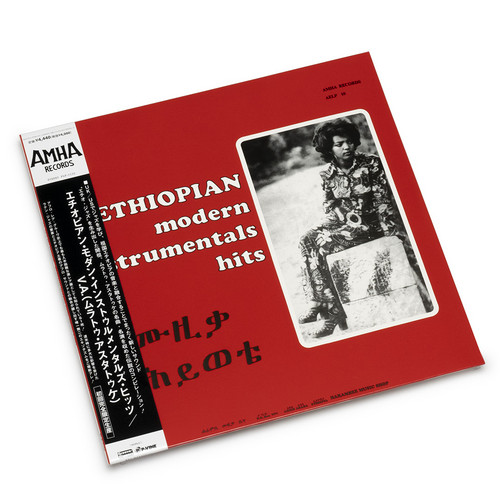Mulatu Astatke
Mulatu Astatke (also written Astatqé on French releases) is arguably one of the most influential and legendary musicians from Ethiopia. During the 1960’s, he studied music abroad in London, Boston, and New York. He then returned home to Ethiopia armed with a love for jazz and Latin music. There he blended Ethiopian traditional music with the Latin-jazz he was so fond of to create a unique hybrid he called “Ethio-jazz”. Mulatu Astatke is first and foremost a composer but also a multi-instrumentalist, playing the vibraphone, keyboards and organs. He is further credited as having established congas and bongos, instruments normally central to Latin styles, in Ethiopian music. However, as Ethiopian songs traditionally focused on vocals his greatest contribution to the music of his country was introducing a new focus on instrumentation. Three of his LPs were recorded in New York City – his first two, Afro-Latin Soul Volumes 1 & 2 in 1966, plus later Mulatu of Ethiopia in 1972. The bulk of his output was on Amha Records (Addis Ababa, Ethiopia) on which he released several 7” singles as well as one LP in 1974 entitled Yekatit Ethio-Jazz.
Mulatu Astatke (also written Astatqé on French releases) is arguably one of the most influential and legendary musicians from Ethiopia. During the 1960’s, he studied music abroad in London, Boston, and New York. He then returned home to Ethiopia armed with a love for jazz and Latin music. There he blended Ethiopian traditional music with the Latin-jazz he was so fond of to create a unique hybrid he called “Ethio-jazz”. Mulatu Astatke is first and foremost a composer but also a multi-instrumentalist, playing the vibraphone, keyboards and organs. He is further credited as having established congas and bongos, instruments normally central to Latin styles, in Ethiopian music. However, as Ethiopian songs traditionally focused on vocals his greatest contribution to the music of his country was introducing a new focus on instrumentation. Three of his LPs were recorded in New York City – his first two, Afro-Latin Soul Volumes 1 & 2 in 1966, plus later Mulatu of Ethiopia in 1972. The bulk of his output was on Amha Records (Addis Ababa, Ethiopia) on which he released several 7” singles as well as one LP in 1974 entitled Yekatit Ethio-Jazz.
